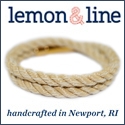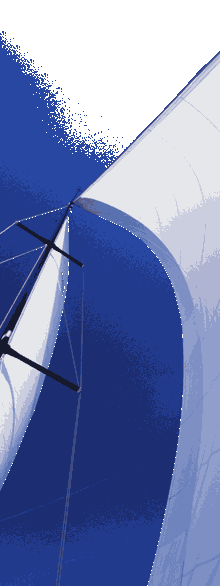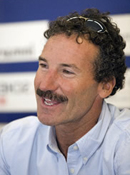
|
|
|
Scuttlebutt News: Conversations within the sport of sailing - Paul Cayard It is often said how sailing is unique as a sport, where the opportunity is readiliy available to compete against the very best in the sport. Occassionally we get the chance to chat with them too.
That was then… this is now. Scuttlebutt contacted Paul Cayard to get an update: Unfortunately the Promoter, Lagos Sports of Portugal, had a number of setbacks and was unable to fulfill his underwriting commitment to get the project started. So the project has died, for now at least. The problem with getting a new circuit started has always been getting the critical mass together and committed to making it happen. You can create the critical mass with one large funding source or with several “team owners” all committing nearly simultaneously to build and campaign boats. Once you have the critical mass, let’s say 6-8 boats, then others can join the circuit on their own time. But if you don’t have security that there will be this critical mass, it is hard to get anyone to commit to participating. We saw an opportunity to provide a better commercial event in the sport of sailing than what currently existed. The attributes we were aiming to improve on were continuity of the event, costs, and excitement. Obviously our event would have independent management. We have studied what works and doesn’t work in sailing and other sports. We planned to deliver spectacular sailing to the public through proximity, new formats, short races, continuity, and repeatability of events (Formula 1 circuit), in very fast but high tech boats, at reasonable cost (NASCAR). Therefore our boat design was a 70-foot catamaran (“one design”). This does two things: it keeps costs down and at the same time it increases commercial value of the event as the boats are all even and any team can win any race which is exciting. We also felt that if we come up with an event that improved on what is out there that we could “consolidate” rather that divide the sport. There isn't anything that has filled the need. We were looking to create something quite different where the commercial value of the teams would substantially exceed the costs to run them, thereby giving the teams some real longevity. The iShares Cup is closest to our concept and may get there someday but the boats we were planning were 70-foot long and much more powerful (compared to iShares Cup 40-footers). Our idea was to create boats that would be very challenging to sail and fast enough to have interesting racing in a wide range of wind conditions. In their powered up mode, the boats would be flying a hull in 5-6 knots of wind but they also could be configured to allow racing in strong winds. Having the flexibility to have great racing irrespective of the conditions and starting on time were important criteria for hospitality planning and media requirements. We tend to spend a lot of time at many venues waiting for enough wind to have a decent race. I am sure something similar will come along. When you operate in the commercial end of any sport, just like any business, you have to be driven by the bottom line. So you have to include elements that produce value and remove elements that don’t add value to the product. There are problems with transforming or transitioning existing events. It may be easier to start with a clean sheet of paper and put the right pieces together and leave behind unnecessary elements. Events like the Volvo, iShares Cup, and RC 44 are making a lot of good moves that should make their events more feasible for teams having a vision to build long term sustainable team brands.  back to top |







|


